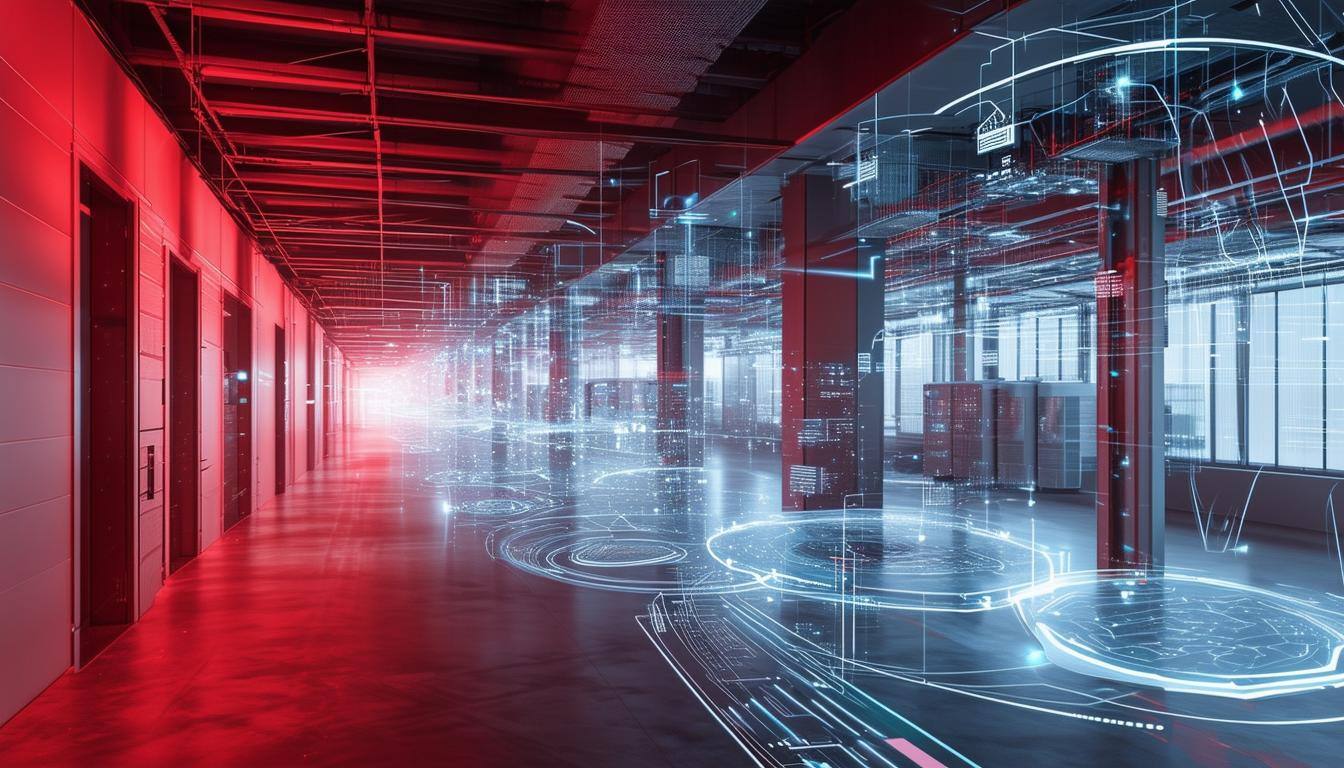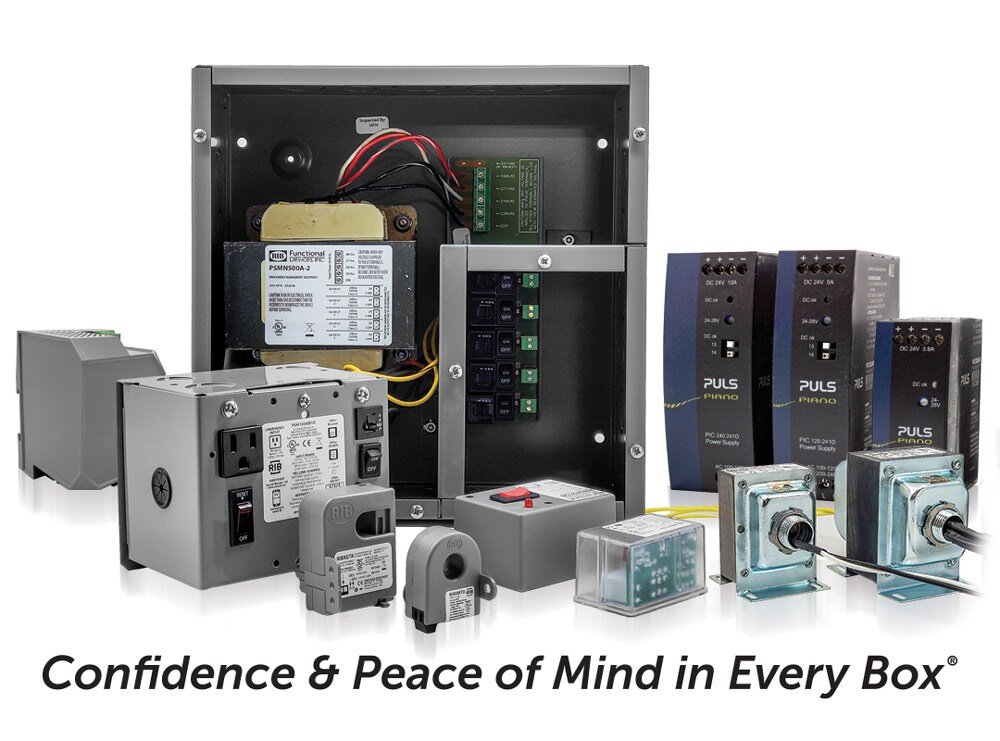AI in Building Automation: Top Trends and Predictions for the Future
Artificial Intelligence (AI) is transforming the Building Automation Systems (BAS) industry, revolutionizing how buildings operate and enhancing efficiency, sustainability, and occupant comfort. By integrating AI with building management systems, facility managers are now able to automate processes, reduce energy consumption, and optimize HVAC systems in ways that were previously unimaginable. In this article, we explore the top trends in AI-driven building automation, showcasing how cutting-edge technologies are reshaping smart buildings. From predictive analytics for maintenance to personalized environments, AI is paving the way for the future of intelligent building systems.

Smart Building AI: Enhancing Efficiency and Sustainability
AI’s impact on building automation is significant, especially as smart buildings become more prevalent. Smart buildings are designed to optimize energy usage, improve occupant comfort, and increase operational efficiency. AI is the driving force behind these intelligent systems, with its ability to process vast amounts of data in real-time.
AI Energy Management SystemsAI-powered energy management systems are one of the most impactful trends in smart buildings. These systems monitor energy consumption patterns, predict peak usage times, and optimize energy distribution across a facility. With AI, building automation systems can automatically adjust heating, cooling, and lighting to reduce energy waste without sacrificing comfort.
According to a study by the International Energy Agency, the use of AI in energy management can reduce building energy consumption by up to 20%. This is crucial for businesses looking to lower their carbon footprint and achieve sustainability goal
AI for HVAC Systems: Optimizing Climate Control
HVAC systems are responsible for a significant portion of a building’s energy consumption, and AI is transforming how these systems are managed. Traditional HVAC systems rely on preset schedules and manual adjustments, but AI-driven systems adapt dynamically to the needs of the building.
AI-Driven HVAC Optimization
AI in HVAC systems allows for continuous monitoring of internal and external temperature, humidity levels, and occupancy data. It can make real-time adjustments to ensure the building is always at an optimal temperature, using the least amount of energy possible. Moreover, AI can predict equipment failure before it happens, allowing for proactive maintenance and reducing downtime.
A prime example of this is Google’s DeepMind AI, which helped reduce their data centers' cooling costs by 40% through dynamic adjustment of their HVAC systems. This level of optimization is becoming increasingly accessible in commercial and industrial buildings.
Building Automation AI Solutions: Predictive Maintenance
Predictive maintenance is one of the most valuable applications of AI in building automation systems. Instead of relying on reactive repairs or scheduled maintenance that may not reflect actual equipment needs, AI can predict when systems are likely to fail based on performance data.
AI-Powered Predictive Maintenance
AI analyzes data from sensors embedded in HVAC systems, elevators, lighting, and other building components to identify patterns that indicate potential failures. This helps facility managers address issues before they become costly or disruptive.
This technology is transforming facility management by improving the lifespan of equipment and reducing maintenance costs. Additionally, predictive maintenance supports sustainable practices by minimizing waste and energy consumption related to inefficient systems.
AI in Smart Buildings: Empowering Occupants
AI’s role in building automation goes beyond systems management—it’s also enhancing the occupant experience in smart buildings. Intelligent systems are making buildings more responsive to the people who use them.
Personalized Building Environments
AI in smart buildings uses data from various sensors to create personalized environments for occupants. For instance, AI can adjust lighting and temperature based on individual preferences or even adapt to the time of day and external conditions. This level of customization improves comfort and productivity for building occupants.
For example, some advanced AI systems are connected to mobile apps, allowing occupants to control their environment with their smartphones. This trend is particularly relevant in commercial office spaces, where employees benefit from tailored environments that boost focus and creativity.
AI Building Management: Integrating Systems for Seamless Operations
The integration of AI across different building systems is leading to a more cohesive approach to facility management. This concept is often referred to as "AI-driven building automation," where various subsystems, such as security, lighting, HVAC, and energy management, communicate seamlessly through AI algorithms.
Unified Building Automation with AI
AI is the backbone of modern integrated building management systems. These systems ensure that all aspects of a building work together in harmony. For example, if an AI-powered security system detects that a room is unoccupied, it can signal the HVAC and lighting systems to adjust settings accordingly, conserving energy.
These intelligent building systems not only improve operational efficiency but also reduce energy consumption and operating costs. The integration of AI in building management allows for smarter decisions that are based on real-time data, ensuring that every part of the building is optimized for peak performance.
Predictions for AI-Driven Building Automation
As AI continues to evolve, its impact on building automation will only grow. Here are a few predictions for how AI will shape the future of the industry:
- Increased Adoption of Autonomous Buildings: We are on the cusp of fully autonomous buildings where AI systems take over most of the management tasks. In these buildings, AI will control everything from energy usage to maintenance schedules, leaving human intervention for only the most complex decisions.
- Expansion of AI into Residential Buildings: While AI-driven building automation is currently more common in commercial and industrial spaces, we expect to see a significant expansion into residential buildings. Homeowners will benefit from AI-powered HVAC systems, energy management tools, and personalized environments.
- AI-Enhanced Security: As cybersecurity becomes more important, AI will play a larger role in building security, analyzing real-time data from cameras and sensors to detect unusual behavior or potential threats. This will result in more proactive security measures, improving overall safety.
- AI in Retrofitting Older Buildings: AI won’t just be for new constructions. Retrofits of older buildings with AI technology will become more common, allowing older infrastructures to benefit from energy savings, predictive maintenance, and improved occupant comfort.
- Focus on Sustainability: As environmental concerns grow, AI will be crucial in helping buildings meet sustainability goals. AI-driven energy management systems will continue to evolve, offering more advanced tools for reducing energy consumption and carbon footprints.
Embracing AI in Building Automation: Unlocking Efficiency and Sustainability
AI is revolutionizing the building automation industry, bringing significant advancements in energy management, HVAC optimization, predictive maintenance, and occupant comfort. As AI continues to develop, we can expect to see smarter, more efficient buildings that not only enhance operational efficiency but also promote sustainability. Whether you’re managing a commercial skyscraper or a small office, the integration of AI in building automation is no longer a luxury—it’s a necessity for the future of intelligent building systems.
As the demand for AI in building automation grows, industries and businesses will need to embrace these AI-driven building automation solutions to remain competitive and environmentally conscious. The future of building automation is bright, and AI is leading the way.
About Functional Devices, Inc.

Functional Devices, Inc., located in the United States of America, has been designing and manufacturing quality electronic devices since 1969. Our mission is to enhance lives in buildings and beyond. We do so by designing and manufacturing reliable, high-quality products for the building automation industry. Our suite of product offerings include RIB relays, current sensors, power controls, power supplies, transformers, lighting controls, and more.
We test 100% of our products, which leads to less than 1 out of every 16,000 products experiencing a failure in the field.
Simply put, we provide users of our various products confidence and peace of mind in every box.